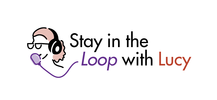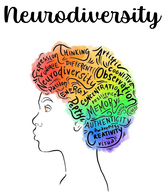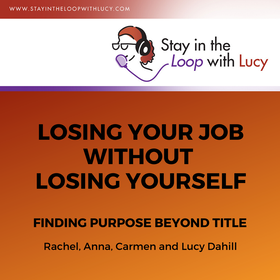|
Meet Alan - he has had throat cancer, which not only changed the way he communicated but changed his relationship with the sound that came out of his mouth.
Although this is a story of his experience of cancer, that is not the focus of the interview. Rather it is how he felt when he couldn't use his words to communicate, what it felt like to surrender to that space and notice how he was communicating all the time and that each time it was with words - they were purpose-full. He could feel they mattered on so many levels. No longer were words just words, they had resonance and meaning.
The year 7-9 Community Problem Solving Team from Ravenswood Girls School have, once again, offered a unique insight into the challenges of Neurodiversity in a school environment. Abi, Millie, Mia and Grace talk us through their project and what their team of 11 have done for the competition. Unravelling Uniqueness is a wonderful celebration of how we can celebrate neurodiversity.
This is a job the majority of us do without being paid, yet as a profession it is in the bracket of 'unskilled labour'. There is a clear distinction in the job market between jobs that seems to reflect on the way we pay people and the value others place on taking those roles as careers. Yet where would we be if we didn't have that support in our lives? There is a very particular skill brought to cleaning that leaves an imprint in the home which forms the foundation for how we live and move in that space.
After spending time with Mary-Louise, June and Michael it is clear we have this all wrong and it has certainly changed the way I clean my home.
After the last post on death and dying - I felt there was an important question to ask - do we know how to live?! Let's be honest, there are handbooks for everything and most of them tell us we are have much to learn, so when Cynthia Hickman a psychotherapist wrote a 'Handbook for Being Human' I was intrigued. My interview with Cynthia talks to how we grow up in this world without buying into the fear factor that is fed to us left, right, centre, up and down!
We have so many pictures of death and dying. What has transpired from these interviews is the way we can reduce those we deeply love to the physical form they have held in our lives and then miss out on the blessing of what is available after they pass.
So should we be questioning our use of the words we use around death and dying? For example, have we really 'lost' a loved one like we might lose a ring or a possession, or can we not 'lose' what was never ours to own in the first place?
The confusion and unease around initial changes to work practices meant these women had to address the stress and reassess how to make decisions. There are also some amazing insights for raising girls in the future - if we can show our girls that you are who you are in your essence and that can't be defined or boxed (by a profession or a title) they are then prepared for everything that comes.
The more I kept things simple, the simpler the decisions became
Our nurses around the world are on the front line in a workplace we have, perhaps, taken for granted for too long. We applaud them, sometimes in the streets, recently openly around the globe. Yet, have we trained them to be able to self-care to the level that is needed to be able to sustain the level of work that is now called for to keep them healthy and well in times of long hours and high stress at work? Listen to two nurses, Shushila and Bianca, who have walked this path, burnt out and then re-trained themselves to be able to share a different way of supporting themselves to support others. Joining them are two mental health care workers Gabrielle Caplice and Annette Baker who are the support service for a number of front-line nurses and speak from what many of the nurses they support have shared with them, and have offered to be shared with many more, so we can support each other more truly.
We can only truly honour our nurses 
Imagine a charity that has built an online ticketing platform and that gives their fees to other charities and you have met the founders of the startup Humanitix. Started by two bold socially conscious men who did not subscribe to the usual model of believing that you have to stay doing something you don't enjoy in order to pay the bills they went about building the company in a very practical way and had a solid strategic plan that has seen them win a major investment from Google who have just made them one of the 4 organisations to receive $1 million towards their project through their Global Impact Challenge! That is one solid stamp of confidence for Humanitix, their board and the team of investors who have supported them to date. Join me as I learn how Joshua Ross, Adam McCurdie and James Humpherson brought it all together.
How much do we underestimate the heart? Is it just part of our function or can it and does it offer so much more that can support us as we live our lives? Phil Shirvington has worked with a dynamic group of teachers to bring the heart, stillness and questioning into practice through Wisdom, Life Faith Studies and shares some foundational understanding as well as top tips for practice.
Teresa Dyson stands on a diverse mix of boards and shares with us the skills honed from school that have stood her in good stead throughout her working life. What is it like being a Board Member in diverse industries? Is there a challenge with gender diversity and is there a big difference between for profit and not-for-profit boards? These are just a few of the questions covered in this interview, as Teresa walks us through her life and decision making process inspiring others to hone the personal and professional skills to contribute in life. Her top tips:
|
Categories
All
AuthorLucy Dahill is the presenter of Stay in the Loop with Lucy, she has a passion for offering people the platform to share their voice. Young, old or somewhere in between we all have wisdom to share if we trust our hearts over our heads. |
||||||||||||



 RSS Feed
RSS Feed